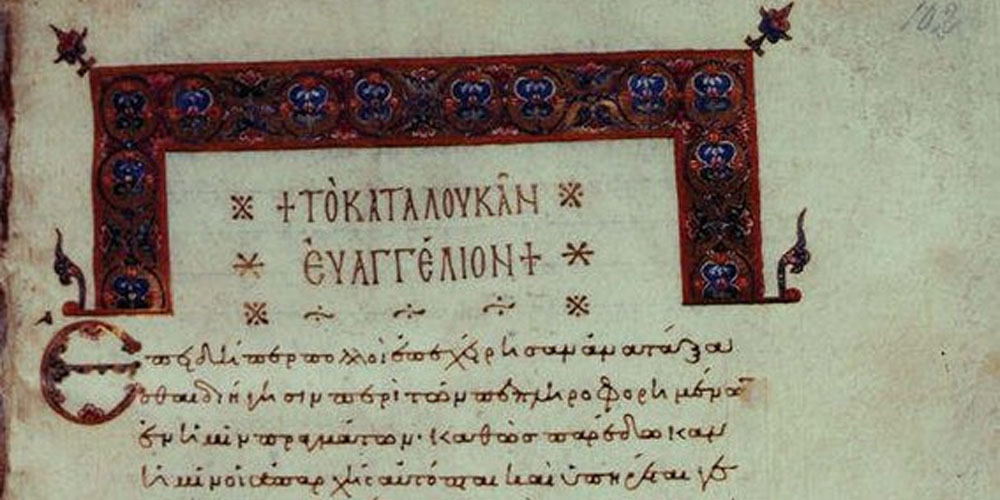The introduction to the Gospel of Luke uses four Greek words that appear only in the two books attributed to him. Some of the other vocabulary in that passage occurs elsewhere only in the Pastoral Letters to Titus and Timothy for which some speculate that Luke served as amanuensis to Paul. Simularities in the erudite Greek grammar used by Luke also indicate he may have translated the book of Hebrews from Paul’s Hebrew into Greek. Biblical scholar, agnostic Quaker, and controversial pacificst Henry Cadbury undertook to compare Luke’s vocabulary to that of the corpus of Greek literature known in 1919 and found, “of the 475 words of the Gospel and Acts considered to be significant, 29 per cent to be common Attic words, 6 per cent to be words used chiefly by one writer before Aristotle, 18 per cent to be words chiefly found in poetry, 42 per cent to be words found in post-classical prose, including Aristotle, and 5 per cent to be words first appearing in Luke.” Having learned all this after the fact makes me feel better about the fact that it took me 20 minutes and multiple trips the the Greek dictionary to read that first long sentence.
Using less difficult vocabulary, Luke begins his narrative with the miraculous conception of John the Baptist. John’s parents Zechariah and Elizabeth are described as both being “righteous before God” and “walking blamelessly in all the commandments and statues of the Lord.” The word rendered “righteous” here is δίκαιος (di-kai-os). This is the adjective form of the noun δίκη (di-kē), which means Justice. I capitalized that because it’s also the name of a Greek goddess. She makes an appearance in Acts 28:4 when the natives of the island where Paul was shipwrecked invoke her under the assumption that she has intervened to kill by snake bite the “criminal” who escaped death at sea. δίκη is also used in the Septuagint to translate the Hebrew word for lawsuit. δίκαιος is often translated as just.In that same sentence another derivation of δίκη appears. The “statutes” of the Lord are His δικαίωμα (di-kia-ō-ma), literally “an act of justice.” So John’s parents were just because they followed rules of justice.
Psalm 19 says “the statutes of the Lord are right, rejoicing the heart.” These rules bring joy. Zechariah was told his son John would cause “joy and gladness, and many will rejoice at his birth.” This son of just parents was also predicted to “turn the hearts of the fathers to the children, and the disobedient to the wisdom of the just, to make ready for the Lord a people prepared.” The disobedient here are the ἀπειθής, that α indicates a lack of something and the rest is the word for “persuade.” Being disobedient means you have not been persuaded that the statutes of the Lord are right and therefore are missing out on the resulting joy. The word Luke uses for “wisdom” is φρόνησις (phro-nēs-is) which comes from one of the verb for “to think.” A more literal translation of the phrase might be “turn…those who have not been persuaded [to] the way of thinking of the just.”
People who are grounded in the statues of true justice simply think differently than others. They find joy in their lives regardless of circumstances. They don’t do unjust things like rioting , burning, and looting in the name of “social justice.” In fact, social justice is an oxymoron. It’s an excuse for accepting no justice at all.



